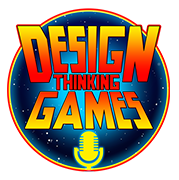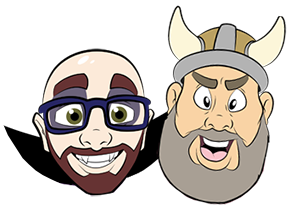Games talked about in this episode:
- 2:35 Last of Us
- 4:48 Mass Effect
- 5:31 Last of Us 2
- 7:24 Mass Effect: Legendary Edition
- 9:21 Tell Me Why
- 13:21 Sims
- 14:39 Gone Home
- 17:15 Cyberpunk 2077
- 20:27 Fortnite
- 22:21 Six Days in Fallujah
- 25:14 Secret of Mana
Introductory Guy
Hello. Welcome to design thinking games, a fantasy and user experience podcast. Each episode, your podcast hosts, Tim Broadwater and Michael Schofield, will examine the player experience of board games, pen and paper role-playing games, live-action games, mobile games, and video games. You can find every episode, including this one, on your podcatcher of choice. And on the web at design thinking games.com.
Tim Broadwater
One of the things I’d like to talk about is relevant as to when we’re recording and releasing this episode, specifically about Pride Month, which is coming up in June 2021. Most people know this. But, you know, it was actually President Bill Clinton in the United States of America. That declared June as Gay and Lesbian Pride Month, and that was back in 1999, which at this point is — oh, my God, 22 years ago?
Michael Schofield
I didn’t know that, um, that Wild Bill instituted that.
Tim Broadwater
Yeah. He declared it in 99-2000, and then there was, of course, a lull, I think, in George W. Bush’s presidency. But since Bill Clinton already said it, it was kind of like, you know, “we’re grandfathered in.” So it just kind of became that. Right. But then also, like, in 2009. I think Barack Obama, the President, brought that back up and officially declared it from 2009 to 2016. And then here recently, our President Donald Trump also acknowledged LGBT Pride Month in 2019. So it’s kind of stuck. But so in regards to that, I think businesses and technologies, of course, jumped on to it. I have a limited amount of experience with LGBT characters and stories, and games. And I’m gonna just say this first and foremost: The Last of Us 2 is probably one of the most famous characters.
Michael Schofield
That was a highly politicized one too. That announcement was controversially received. Right?
Tim Broadwater
There were a lot of strong feelings, I think, in the gamer community, in regards to canon. What’s canon? What’s not? So I know, like gaming, as you’re mentioning, like, with Last of Us 2 and the lead character, Ellie being kind of gay, or lesbian, actually not gay. I keep going back to female Ghostbusters and black stormtroopers and just changing or progressing a narrative or fandom and kind of growing it into a new type of area. So the last was to was definitely really controversial.
Michael Schofield
Anything that displaces the norm and the status quo can be interpreted as an attack on a group’s power and hegemony. All of these changes over the last couple of decades as gaming has become increasingly mainstream reflect that. Adding gay relationships to Mass Effect 1, which highlighted the ability to have relationships with your party members, was a big deal. It was on Fox News. It was one of these things.
Tim Broadwater
2009 right?
Michael Schofield
2007 is when Mass Effect 1 came out.
Tim Broadwater
For Last of Us and then Last of Us 2, we see Ellie living with a female companion on a farm. They have a child, and it’s accepted in their community, which is this kind of world kind of mountain, farming community where everyone knows. No one has a problem with it. There’s kind of both bisexuality and lesbianism, and the community’s okay with it. And the way that it’s treated to where it’s just normal, it’s not anything different. It’s just kind of how this couple is, you know, that, I think, is what is refreshing to LGBT players and gamers. When they kind of experienced that game, you know.
Michael Schofield
I imagine there’s a spectrum, right? A spectrum between pandering and representation. You can tell when you’re being pandered to, and maybe, historically, pandering-to was the best-case scenario at the moment in time. On the other end of the spectrum, it’s just represented as normal, where it’s not even brought up as part of the character story. I’m replaying Mass Effect 1, and you can be in lesbian relationships if you play as FemShep. There’s an argument that it’s not really such because the Asari partner’s entire species is female-presenting, so there is no gender distinction there.
But in 2007, it was a highly sexualized thing. So like FemShep (in Mass Effect, you can play as male Shepherd or female Shepherd), all of the female characters throughout the Mass Effect series look like they were designed by dude, comic book artists, and the gay relationship can be read as a male-gazey exploitative perk, especially when you consider that as MaleShep you can’t have a male gay relationship. So this falls to the pandering or exploitative end of the spectrum, where it’s “LGBT as feature.” But then you go all the way to the other side with DONTNOD’s Tell Me Why. This game is in the vein of the Life Is Strange series or even Telltales’ Walking Dead. In Tell Me Why, the main character is a trans man. And it is a part of the narrative in the sense that presents social obstacles for this character, but it’s not the point of the story at all. It was additive to the game is super interesting to put yourself in those shoes.
Tim Broadwater
That’s interesting because you know I can’t say much either. I am a white cisgender male homosexual, right, but I will say this like I think people respond to when it’s just a story and normal. You can’t always lead though with like, “Hey, this is this new side-scrolling action-adventure, and it’s a gay plumber who’s Italian, and he’s saving ….” If you lead that way, you know, this is one part of this character it’s not the whole thing you know?
Michael Schofield
Yeah, I think that’s the design challenge, right? Regardless of its legitimacy, an argument you hear is that “these people are trying to hit a diversity quota.” Or, because productized narratives and games or movies or series are a numbers game, they want to include more diversity to increase viewership or readership. (Frankly, that seems like a great reason to diversify the narrative.) But the unspoken slight is that this is insincere.
Tim Broadwater
One of the things to kind of note about what you said is that there are franchises that, oh, this character happens to be gay in the film or comic book, or what have you. And then when we make the game version of it, you know, do we include that? Or do we not include that? But then we just see a movement more towards not just main characters, but side characters and other characters in games that are bisexual or lesbian, or gay, or trans. And I think we start to see characters that show up like in Grand Theft Auto, a construction worker or a police officer, or a side quest to find their ex-boyfriend. I remember back to the first experience that I ever had of a gay character in a game, and I don’t even know which one it was, but it was one of the Sims versions. Back when the Sims were on everything, they just kept releasing Sims all the time, like Sims: Pool house Party, or Sims: Auto Show, and they would just like keep giving you stuff that you buy and like add on. But I can remember there was a time where you could actually make two people live together. After enough time, you could get them to buy gifts for each other and build affection. And it was like, Oh, I can build a gayborhood, I could actually build all these different types of relationships. I think it’s great to see characters of different diversities, just different stories, and comic books, in movies, in series in games. It’s like, just kind of what I think Pride has become in general. Maybe what people associate with it, or whether I think over 50 years, has become a call for diversity and inclusion, you know, and celebrate that in June.
Michael Schofield
Did you ever play the game Gone Home?
Tim Broadwater
This sounds familiar to me.
Michael Schofield
Gone Home was, for lack of a better term, a walking simulator. There’s not even like a plot, arguably. And you are a college student, I think, who returns home and the house is empty, Mom and Dad are gone, you have a little sibling who’s also gone. It’s stormy outside. There’s kind of a haunted house type of feel. The lights flicker every so often. And you are wandering around this lived-in house, not perfectly clean, lots of papers everywhere. I think it’s hard for me to figure out what the game is about. But one of the things that you find as you as you go, through the outside in, you are basically looking through people’s drawers, your own drawers, the drawers of your sibling, etc. And you are, for all intents and purposes, this college student returned home. And you don’t really discover until three hours in when you’re digging through your own room or whatever – that either you or your sibling, I think you, I think you’re gay. The game lets you immerse in the first person totally from another perspective. It’s one thing to play like as FemShep, right? In the third person over the shoulder view, where you are piloting the character. And it’s different when it’s first-person, and you are.
Tim Broadwater
Yeah, I mean, it makes me think everyone’s experience is kind of different. And so some people made fun of Facebook for a while, but the fact that they could do all of these different types of relationship statuses. These different sexualities and different gender identifications? I don’t think you played Cyberpunk 2077? You can be nonbinary, you can be transgender.,
Michael Schofield
Is this like the first time? Can you think of other games that have given you that option at this Triple A level?
Tim Broadwater
Vampire: the Masquerade, I thought that they let you choose your pronouns. I mean, essentially, like social media now allows you to kind of if you fill out your profile as much as you want, but we want to give everyone different options. And so, you know, I think what I like about seeing this in Cyberpunk 2077 and Vampire: the Masquerade, it acknowledges and then lets you celebrate, or live or experience, your diversity, right? And so the fact that there are people who are in the world who all don’t have the same experience. There are people who were attracted to people of the same sex, or they do not feel like a man, they feel like a woman inside, or maybe they’re in a relationship with two different people, maybe they’re in a poly relationship, or maybe people are nonbinary, that they feel gender fluid, and I think we’re starting to see a lot more of that in character creations and profiles, you know, and the way that players can express themselves. A lot of gamers now know themselves through Twitch streams and Discord and through their online kind of profile. So it’s very much like, Ready Player One or Ready Player Two that you can kind of be your avatar. It’s whoever you can be. And why can’t it be completely crazy or completely accurate? And why is it offensive to you?
Michael Schofield
That’s funny. Remember the late 90s, early 2000s. Maybe that persisting fear to never, never trust that the person you’re talking to in the chat room. It really isn’t a 16-year-old girl because it’s a 40-year-old man.
Tim Broadwater
Exactly.
Michael Schofield
This was a threat in early internet life, that, hey, there are people out there posing as something that they aren’t, and this is perverted and creepy and scary and literally threatening in a way.
Tim Broadwater
Now, on the flip side of that, it is probably to some degree the opposite. I feel like a furry, I feel like a blue wolf, and I’m gender fluid, and I should be able to do these things. And then if we look at games like Fortnight, where I want to be John Wick, or I want to be Wolverine, or I want to have blue hair, I want to be a wolf. I think we’re only going to see that kind of level of …, with games that don’t have a specific narrative that writes you as the player into the main character role that doesn’t have enough wiggle room to be whatever sex, gender, race and by race, I mean, you know, if you’re a robot or a dog, or human or Cyborg, I think you’re gonna have you know, some limited wiggle room. This is the game that your avatar can be whatever. It kind of separates the hardware from the software.
Michael Schofield
There’s a really interesting dovetail here to like an earlier conversation we had that was all about the growing basic expectation of customizing the user interface. Your example was the ability to customize a table throughout a web app where you can say like, I want this column and this column, but not this column. We ended up with a term for it. Like, like, operator agnosticism, or something like that. But you know, it’s the same principle that is just going to scale to avatar and to presentation. And there are going to be instances where the linear story matters in this specific way. And you’re going to tell the story of like some soldier in, you know, the mid-2000s, Fallujah, you’re going to be shoehorned into at least probably a gender, right? If not a specific race, depending on who they’re showing. But there’s the other side, where are these kind of like, sandboxes where the expectation that you can just be whomever…
Tim Broadwater
Definitely with Mass Effect or Pathfinder or just like future science fiction?
Michael Schofield
Yeah, like, I’m a fucking slug human. I’m a Salarian. It’s the normalization of being someone different, not even permanently after, other than the person that you were born with. Maybe in the future, you switch genders several times throughout your life. Something like that seems really healing.
Tim Broadwater
I think that happens now. Two examples come to mind. So this is the thing that I think that as UXers — it doesn’t matter if you’re making software services, or you’re a user experience person that’s working on games — you have to realize you’re working with people, and people want to express themselves in different ways. And people are gonna want different things out of games. So we’re walking along, and Korra, the Avatar, becomes a lesbian. People flip out. Iceman is now gay. And I love how they explained that in the comic books to where they went back in time and brought the first X-Men team forward in time, and they’re like in today’s society, and there’s more acceptance or more inclusivity, and Iceman was like, “I’m gay.” And he goes to the older Iceman who’s like in his 40s now, and he’s like, “are you not if I’m you from the past?” And he’s like, “I guess I am. I’ve just always kind of pushed it down. I never even thought about it.” And people may not realize it, but everyone doesn’t have the guidebook or the tutorial to life. So I think people will realize along the way if they have an attraction they didn’t have before, or if they may feel a different way to where they’re not their same gender or sex. And I think, as UXers, the thing that that kind of encapsulates this, which is realizing. I always think I always kind of like the user. When they talk about the users, it sounds like they’re a dirty drug addict, right? But it’s like their people. Your job is to advocate for people, and people want to express themselves in different ways. And I was completely blown away, like when I see advances in user interfaces, and I think like the very first time I ever played Secret of Mana, and I saw like the ring navigation system, I’m not sure if you’ve ever played Secret of Mana, but it has this ring navigation system. I’m like, this is the future. Like, this is literally amazing because it’s just different than what everything else. It’s not Bootstrap, right. It’s something that feels different and works different, and you have to learn it, but then it kind of really is fluid and works, and you can fly through it. It’s just like the different design keyboards, I feel. So I guess my point being is that Pride Month is celebrating inclusivity celebrating diversity. We need to just empower people to express themselves in the way that they want to, and we’re just gonna see more and more of that in social media. We’re gonna see more of it in games, and we’re gonna see more of it in any type of product or service that people use.
Michael Schofield
Well said.
Introductory Guy
Thank you for listening to the design thinking games podcast. To connect with your hosts, Michael or Tim, please go to design thinking games.com where you can request topics, ask questions, or see what else is going on. Until next time, game on.



